Background
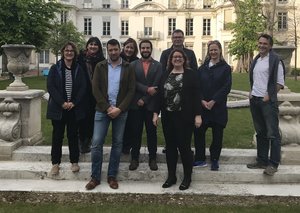
Dissemination, outreach and communication of scientific knowledge is very important in today’s society, where social inclusion is an integral part of environmental protection and sustainable development. This is particularly true for the world of ocean research, a world that is largely hidden from our view, representing an added challenge to the communication of marine research. From its inception, the Ocean Literacy movement has advocated closer interaction between marine scientists, educators and other stakeholders (the public, policy-makers, private sector), and inspired new events and networks all over the world.
Panel Objectives
- Exchange ideas on events, communication methods and best practice;
- Mutually assist its members in promoting and communicating marine science across Europe;
- Be (re)present(ed) at major European (marine) science events;
- Communicate European Marine Board activities and outputs at national level through press releases and twinning activities;
- Popularize marine science by advocating more Ocean Literacy.
The Terms of Reference of the EMBCP are available here.
Panel activities
The European Marine Board Communication Panel exchange ideas and practices during their meetings, organized twice a year. EMBCP members also contribute to the dissemination of European Marine Board publications, and advice on communication activities to increase the uptake and impact of our publications. The panel members participate regularly in conferences and events, to promote the importance of communication and ocean literacy. In addition, the EMBCP organizes sessions on science communication at events, forums and conferences, and the members are involved in the communication of different research projects.
- 6th International Marine Science Communication Conference (CommOCEAN 2024, 26-27 November 2024 - Málaga, Spain)
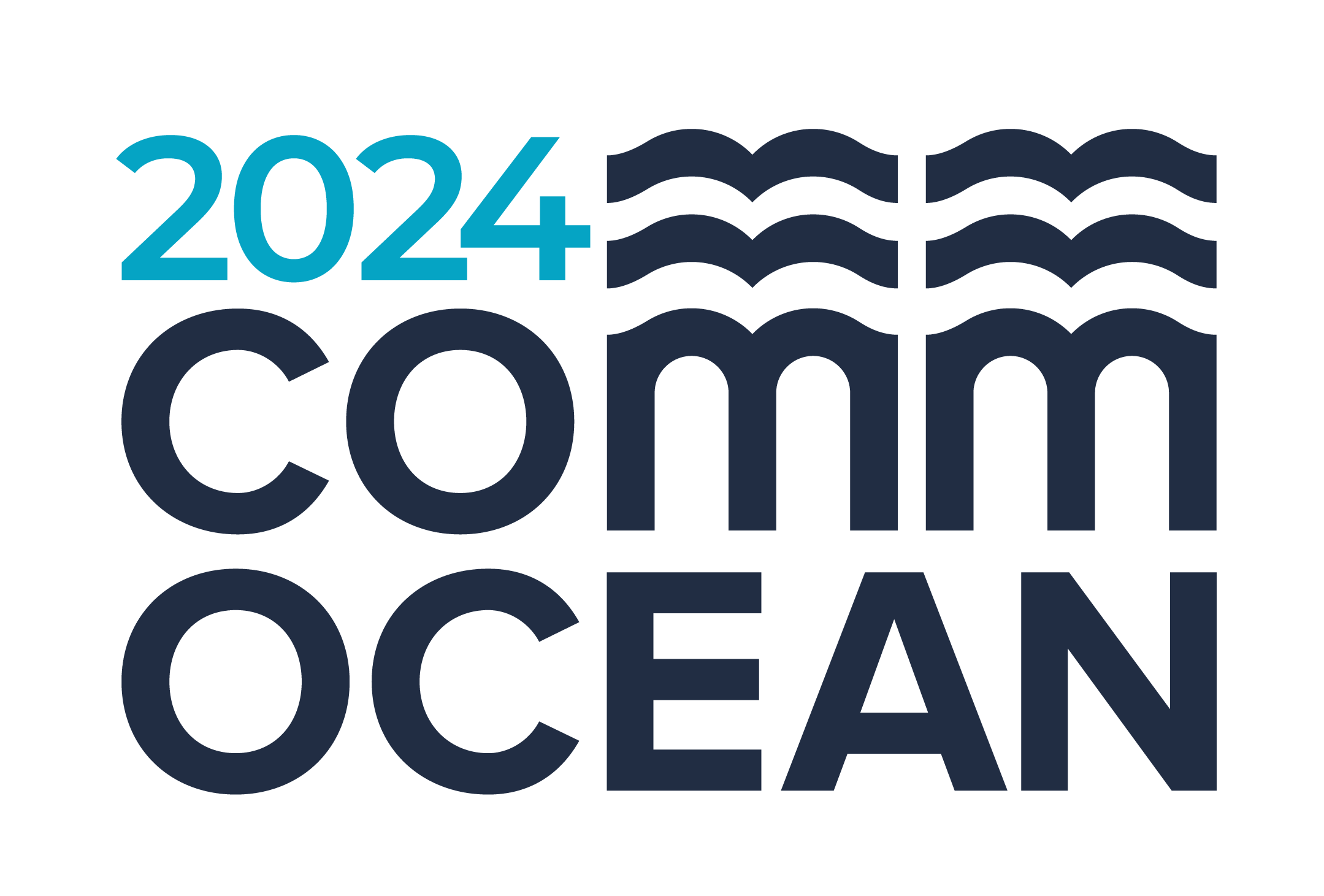 CommOCEAN 2024 - a unique opportunity to enhance communication skills in ocean science in a collaborative environment filled with expert-led workshops, networking sessions, and insightful discussions on the latest trends in ocean research communication. The 6th conference was co-organised with the Spanish Institute of Oceanography (IEO-CSIC). You can follow the most recent news via Twitter (@CommOCEANConf), Facebook (@commocean), Instagram (@commoceanconference) and on the conference website (http://commocean.org/).
CommOCEAN 2024 - a unique opportunity to enhance communication skills in ocean science in a collaborative environment filled with expert-led workshops, networking sessions, and insightful discussions on the latest trends in ocean research communication. The 6th conference was co-organised with the Spanish Institute of Oceanography (IEO-CSIC). You can follow the most recent news via Twitter (@CommOCEANConf), Facebook (@commocean), Instagram (@commoceanconference) and on the conference website (http://commocean.org/).
- 5th International Marine Science Communication Conference (CommOCEAN 2022, 30 November - 1 December 2022, Sète - France & online)
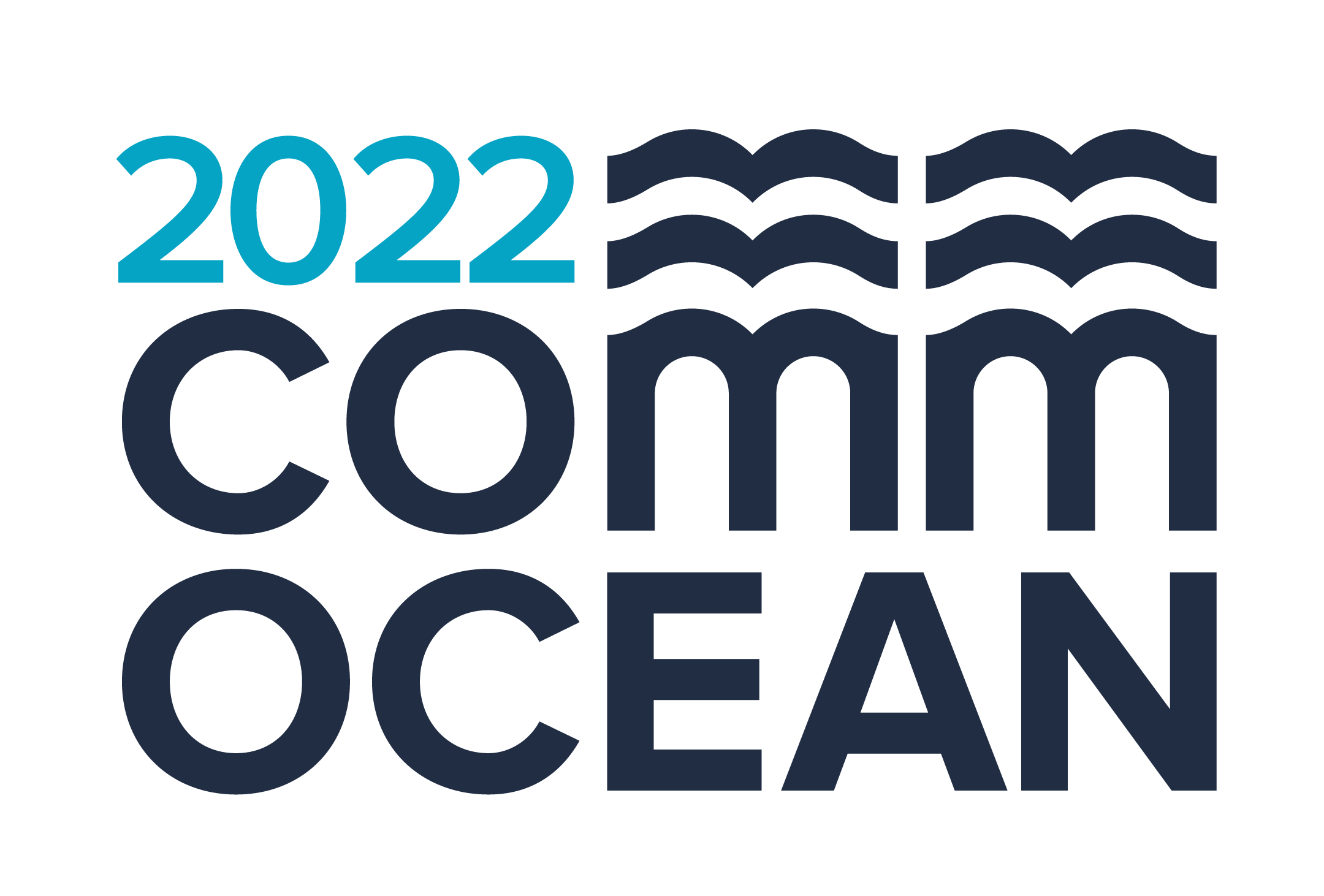 CommOCEAN 2022 conference took place as a hybrid event in Sète (France) with several sessions running fully online, ensuring a relevant, challenging and inspiring programme for everyone joining in person or online. The 5th conference was co-organised with the University of Montpellier, Ifremer and MARBEC lab. You can follow the most recent news via Twitter (@CommOCEANConf), Facebook (@commocean) and on the conference website (http://commocean.org/).
CommOCEAN 2022 conference took place as a hybrid event in Sète (France) with several sessions running fully online, ensuring a relevant, challenging and inspiring programme for everyone joining in person or online. The 5th conference was co-organised with the University of Montpellier, Ifremer and MARBEC lab. You can follow the most recent news via Twitter (@CommOCEANConf), Facebook (@commocean) and on the conference website (http://commocean.org/).
- Involvement of EMBCP members with the EMB Working Groups
EMB has clear procedures and guidelines for selecting the experts forming its Working Groups. To help communicating the science-policy publications yielding from these Working Groups, and increasing the impact of their messages, a EMBCP member is involved in the process and in close collaboration with the desginated Science Officer. This may include advice and collaboration on infographics and briefs, and sharing national contacts and networks to disseminate the EMB publication.
- 4th International Marine Science Communication Conference (CommOCEAN 2020, 1-2 December, online)
CommOCEAN 2020 conference was a virtual event due to the COVID-19 pandemic. This conference aimed to provide communication skills and inspiration to communicators across a range of experience levels. Many sessions were suitable for all, but some elements of the programme run simultaneously and were tailored for those looking to build their communications skills and to those looking to move their communications to the next level. You can follow the most recent news via Twitter (@CommOCEANConf), Facebook (@commocean) and on the conference website (http://commocean.org/).
- Policy document on Marine Science Communication in Europe
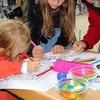 The Communications Panel decided in 2019 to write a policy document, under the auspices and with the support of the European Marine Board (EMB). This document would sketch and analyse the state of the art in the field of marine science communication, aiming to highlight marine science communication as a growing and needed field of activity, and providing recommendations towards its future and developing best practices. More information can be found here.
The Communications Panel decided in 2019 to write a policy document, under the auspices and with the support of the European Marine Board (EMB). This document would sketch and analyse the state of the art in the field of marine science communication, aiming to highlight marine science communication as a growing and needed field of activity, and providing recommendations towards its future and developing best practices. More information can be found here.
- Communication strategy of Navigating the Future V
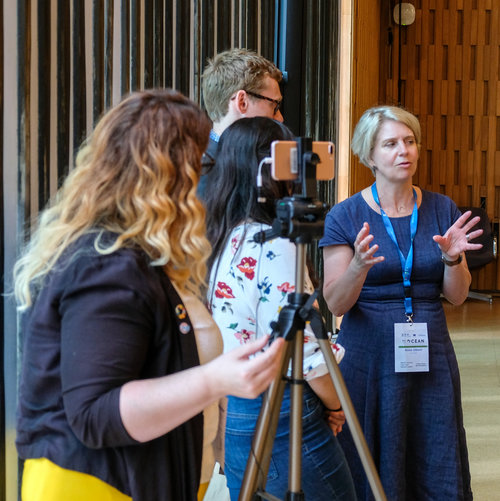 The Communication Panel advised on developing a communication strategy to promote and launch the EMB flagship Navigating the Future V (NFV). Actions included the promotion of the achievements of Navigating the Future IV, the suggestion to develop infographics and short videos on the themes covered by NFV, the building up interest via online channels of the document before the launch, the drafting and dissemination of a press release at the occasion of the launch at the EurOCEAN 2019 conference (11-12 June 2019), which attracted several journalists from press and radio; the development of a video summarizing the launch of NFV, and to continue the dissemination of the themes and achievements after the launch of the document. A report of the main results is available here.
The Communication Panel advised on developing a communication strategy to promote and launch the EMB flagship Navigating the Future V (NFV). Actions included the promotion of the achievements of Navigating the Future IV, the suggestion to develop infographics and short videos on the themes covered by NFV, the building up interest via online channels of the document before the launch, the drafting and dissemination of a press release at the occasion of the launch at the EurOCEAN 2019 conference (11-12 June 2019), which attracted several journalists from press and radio; the development of a video summarizing the launch of NFV, and to continue the dissemination of the themes and achievements after the launch of the document. A report of the main results is available here.
- 3rd International Marine Science Communication Conference (CommOCEAN 2018: 4-5 December, Southampton, UK)
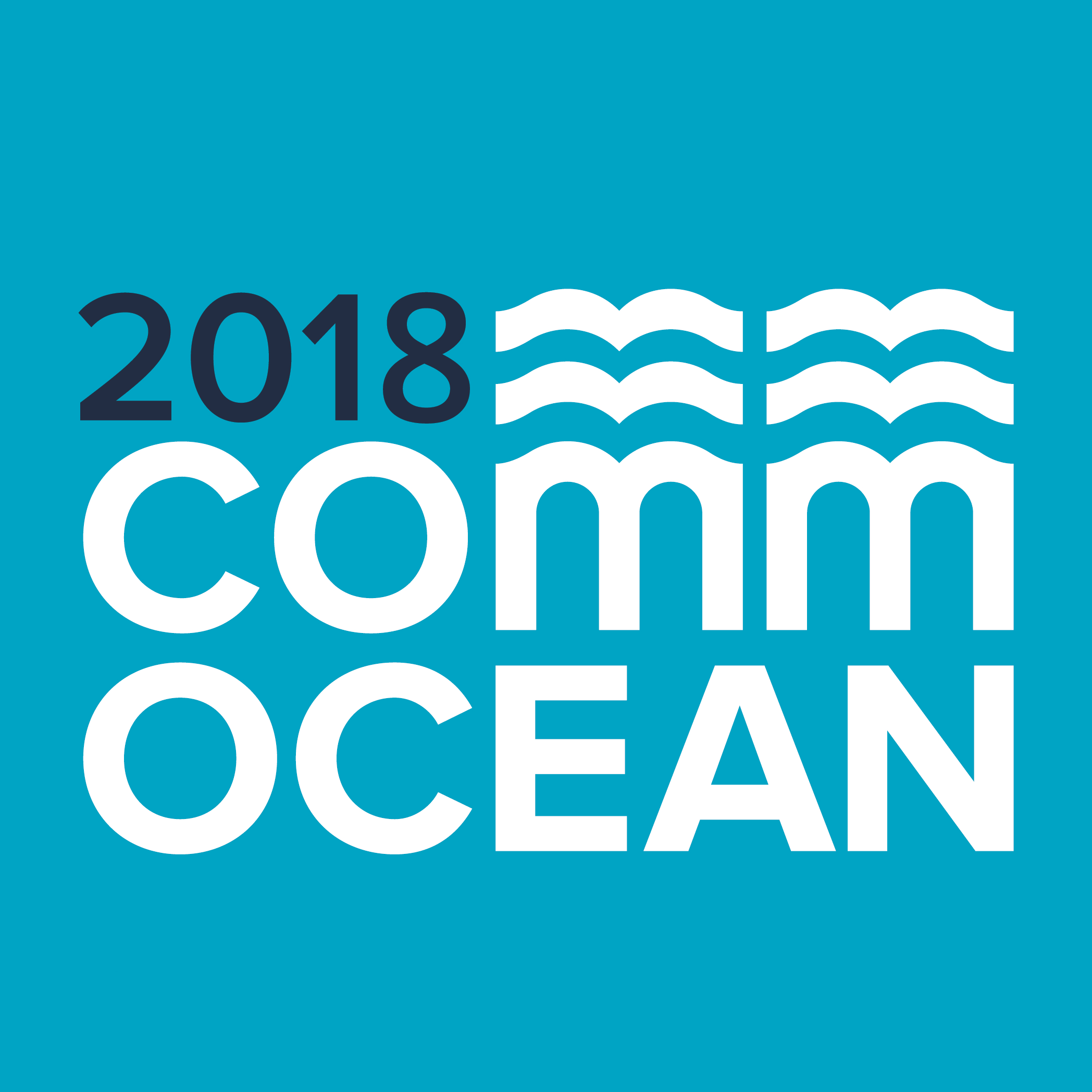 CommOCEAN 2018 conference programme combined hands-on exercises in current science communication skills for disseminating ocean research and technology, with plenty of expertise-sharing, social interaction and fascinating marine science along the way. http://www.commocean.org/
CommOCEAN 2018 conference programme combined hands-on exercises in current science communication skills for disseminating ocean research and technology, with plenty of expertise-sharing, social interaction and fascinating marine science along the way. http://www.commocean.org/
CommOCEAN focused on a target audience of young marine scientists and communicators who want to be trained in science communication skills. The 3rd event, organized and hosted by the National Oceanography Centre (NOC) in Southampton, UK, offered inspiring and insightful addresses from leasers in marine science communication, presentations and workshops covering communication techniques and platforms, and examples of marine science research communications campaigns. You can also follow the discussions via Twitter (@CommOCEANConf).
- 2nd International Marine Science Communication Conference (CommOCEAN 2016: 6-7 December, Bruges, Belgium)
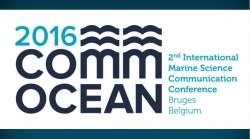
In addition, on 8 December an Ocean Teacher training course on ocean communication was organized by the IODE Project Office for IOC of UNESCO in Ostend for 50 people. Materials from the conference can be found on the dedicated conference website.
- 1st International Marine Science Communication Conference (IMSCC 2014)
The 1st International Marine Science Communication Conference (IMSCC 2014, 8-9 September, Porto) focused on tools and practices for scientists and marine science communicators to develop their skills and improve dialogue with a range of target audiences including the general public and decision-makers. The concept of a conference dedicated to marine science communication was first proposed by the EMBCP and the conference was jointly organized by CIIMAR (Interdisciplinary Centre of Marine and Environmental Research of the University of Porto), the EMBCP and Ciência Viva (Portuguese National Agency for Scientific and Technological Culture). Presentations and workshops covered a broad spectrum of marine science communication issues including the use of tools such as social media and infographics, tips for dealing with the media and case studies of successful outreach programmes employing best practice.
- Ocean Literacy conference
The EMBCP co-organized the First Conference on Ocean Literacy in Europe in Bruges, Belgium on 12 October 2012. The conference was attended by 110 participants from 15 countries. The programme included high-profile speakers from European and international organizations with a strong interest in ocean education and marine science communication. This event highlighted a crucial need for public support towards achieving a sustainable maritime economy and knowledge-based society.
- EuroScience Open Forum (ESOF) 2012
The EMBCP organized a workshop “Atlantic Ocean Literacy : a Grand Challenge for Marine Science Communication and Education” during the https://www.euroscience.org/) 2012 in Dublin, on 12 July 2012. This event, bringing together European and North American experts in marine science communication and education, delivered valuable recommendations for future trans-Atlantic cooperation in the area of Ocean Literacy. The session was coordinated by Albert Gerdes (EMBCP/MARUM, Germany), speakers: Jan Seys (EMBCP/VLIZ, Belgium), Evy Copejans (EMSEA/VLIZ, Belgium), Ana Norona (Ciencia Viva, Portugal) and Peter Tuddenham (College of Exploration, USA).
- European Geosciences Union (EGU) 2009
The EMBCP session on “The Significance of Marine Technology in Science Communication – Challenges and Opportunities” (21/04/09, Vienna) allowed fruitful discussions moderated by Heike Langenberg, Nature Geoscience Editor.
- EuroScience Open Forum (ESOF) 2008
The EMBCP session “Revealing the hidden map of Europe” (21/07/08, Barcelona) brought together professional science communicators across Europe to present how scientific findings from the deep are used to science communication efforts. The debate was moderated by Holger Wormer, Professor for Science Communication at Dortmund University and former science editor of Germany biggest daily newspaper Süddeutsche Zeitung Munich. Download press release here.
Meetings
- 14-15 October 2025, Trieste, Italy
- 21 March 2025, online
- 28 November 2024, Málaga, Spain
- 21 March 2024, online
- 23-24 October 2023, Split, Croatia
- 19 April 2023, online
- 2 December 2022, Sète, France
- 18 March 2022, online
- 19-20 October 2021, Fuengirola, Spain
- 25 March 2021, online
- 20 November 2020, online
- 25 March 2020, online
- 6-7 November 2019, Berlin, Germany
- 15-16 April 2019, Paris, France
- 6 December 2018, Southampton, UK
- 15-16 May 2018, Matosihnos, Portugal
- 16-17 October 2017, Galway, Ireland
- 3-4 May 2017, Genova, Italy
- 8 December 2016, Ostend, Belgium
- 25-26 April 2016, Sopot, Poland
- 13 October 2015, Split, Croatia
- 27 April 2015, Athens, Greece
- 10 September 2014, Porto, Portugal
- 15 May 2014, Brest, France
- 4-5 November 2013, Hamburg, Germany
- 22-23 April, Bergen, Norway
- 15-16 October 2012, Texel, Netherlands
- 19-20 April 2012, Bruges, Belgium
- 25-26 October 2011, Trieste, Italy
- 11 May 2011, Tallinn, Estonia
- 29-30 November 2010, Lisbon, Portugal
- 29-30 March 2010, Southampton, UK
- 12-13 October 2009, Sopot, Poland
- 2-3 February 2009, Paris, France
- 14 May 2008, Ostend, Belgium
- 13-14 November 2007, Brussels, Belgium
- 21 June 2007, Aberdeen, UK
- 6 December 2006, Texel, The Netherlands
- 10 June 2006, Galway, Ireland
Panel Members
The EMBCP is composed of experienced communication professionals: communication directors (officers), public relations officers, outreach experts or press officers, working for research performing organizations and research funding organizations. The EMBCP benefits from a variety of expertise; members are either:
- Initially trained as (science) communicators, or
- Marine scientists who embraced a marine science communications career, or
- Active scientists with ad hoc communications duties, or
- Working in a specific activity remit (e.g. education or media relations), others are led to address a wide scope of communications related activities.
EMBCP members are appointed by the delegates representing the members of European Marine Board. Members should be from/ affiliated to EMB Member Organizations and based on one membership per organisation.
- Chair - Tymon Zielinski - Institute of Oceanology of the Polish Academy of Sciences (IO PAN), Poland
- Jess Allen & Lloyd Gofton - National Oceanography Centre (NOC), United Kingdom
- Sverre Ole Drønen - Norwegian Marine University Consortium (NMUC), Norway
- Daria Ezgeta Balic - Institute of Oceanography and Fisheries (IOF), Croatia
- Francesca Garaventa - National Research Council, Institute of Marine Research (IAS-CNR), Italy
- Marie Ghalanos - Cyprus Marine & Maritime Institute (CMMI), Cyprus
- Claudia Gili - Stazione Zoologica Anton Dohrn Napoli (SZN), Italy
- Géraldine Guillevic - Institut Français de Recherche pour l'Exploitation de la Mer (Ifremer), France
- Kathrin Kopke - University College Cork (UCC), Ireland
- Pablo Lozano - Spanish Institute of Oceanography (IEO-CSIC), Spain
- Anna Niewerth - Helmholtz Centre for Ocean Research Kiel (GEOMAR), Germany
- Ana Mena & Eunice Sousa - Centre of Marine and Environmental Research (CIIMAR), Portugal
- Kelle Moreau - Royal Belgian Institute of Natural Sciences (RBINS), Belgium
- Mette Mila - Research Council of Norway (RCN), Norway
- Francesca Petrera - National Institute of Oceanography and Applied Geophysics (OGS), Italy
- Kim Sauter - Royal Netherlands Institute for Sea Research (NIOZ), The Netherlands
- Ezgi Sahin Yucel - Institute of Marine Sciences, Middle East Technical University (METU-IMS), Türkiye
- Jan Seys & Nancy Fockedey - Flanders Marine Institute (VLIZ), Belgium
- Kathleen Sweeney - Marine Institute (MI), Ireland
- Dominique Simon - Réseau des Universités Marines Françaises (Marine Universities of France), France
Panel Steering Group
After the review in 2016 by European Marine Board, the Communication Panel became permanent as it was seen as strategically important for EMB. One of the recommendations was the establishment of a Steering Group (and selecting a EMBCP Vice-Chair as well) which should increase the commitment of EMBCP members, may join the Science Sessions of the EMB plenary meetings, ensure stronger links with EMB (advisors on communication) and other specific tasks or projects (e.g. CommOCEAN, input to Navigating the Future series).
- Chair - Tymon Zielinski, IO PAN
- Francesca Petrera, OGS
- Dominique Simon, Marine Universities of France
- Daria Ezgeta Balic, IOF
- Kelle Moreau, RBINS
Contact at European Marine Board Secretariat: Ángel Muñiz Piniella Email